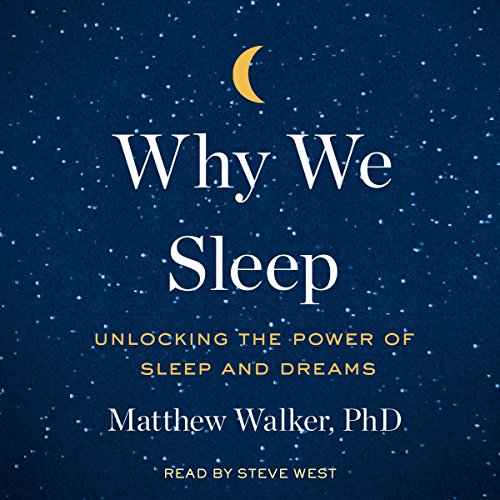For normal folks like you and me, and for doctors or scientists as well; sleep's been always a mysterious phenomena. We humans sleep (preferably) one third of our whole life.
This is an enormous amount of time which demands some attention. Though historically the attention has not been allotted to sleep it deserves, academically or culturally.
Why, though seemingly unnecessary/time-wasting/futile/unproductive ; we still need to get a good night's sleep to get a long list of physiological, biological, psychological benefits.
And if you by any chance fail to get the necessary amount of sleep (voluntarily or otherwise) ; you're a big gambler who doesn't have the idea about the grave repercussions.
Sleep is a mystery. And this book is a lifesaver.
This book will be beneficial to everybody except those smart dudes who have unwavering faith in some generic and prejudiced sayings like:
"Six hours of sleep is enough for a functional adult" or "You'll have chance to sleep all you need when you're dead" or "Our great leader sleeps only four hours/day; hence I should do the same to be like him." etc.
Don't trust them for Kumbhkarna's sake. Don't mess with sleep.
Some curious takeaways from the book:
“Why We Sleep is an important and fascinating book…Walker taught me a lot about this basic activity that every person on Earth need ; I suspect his book will do the same for you.” —Bill Gates
A New York Times bestseller and international sensation ; this “stimulating and important book” (Financial Times) is a fascinating dive into the purpose and power of slumber.
With two appearances on CBS This Morning and Fresh Air's most popular interview of 2017 ; Matthew Walker has made abundantly clear that sleep is one of the most important but least understood aspects of our life.
Science answer
Until very recently; science had no answer to the question of why we sleep, or what good it served, or why we suffer such devastating health consequences when it is absent.
Compared to the other basic drives in life—eating, drinking ; and reproducing—the purpose of nap remains more elusive.
Within the brain, sleep enriches a diversity of functions; including our ability to learn, memorize, and make logical decisions.
It recalibrates our emotions; restocks our immune system ; fine-tunes our metabolism, and regulates our appetite. Dreaming creates a virtual reality space in which the brain melds past and present knowledge, inspiring creativity.
In this “compelling and utterly convincing” (The Sunday Times) book, preeminent neuroscientist and insomnia expert Matthew Walker provides a revolutionary exploration of sleeping ; examining how it affects every aspect of our physical and mental well-being.
Charting the most cutting-edge scientific breakthroughs, and marshalling his decades of research and clinical practice, Walker explains how we can harness sleep to improve learning ; mood and energy levels, regulate hormones, prevent cancer, Alzheimer’s and diabetes, slow the effects of aging, and increase longevity.
He also provides actionable steps towards getting a rapid eye movement every night.
Clear-eyed, fascinating, and accessible ; Why We Sleep is a crucial and illuminating book. Written with the precision of Atul Gawande, Andrew Solomon, and Sherwin Nuland, it is “recommended for night-table reading in the most pragmatic sense” (TheNew York Times Book Review).


